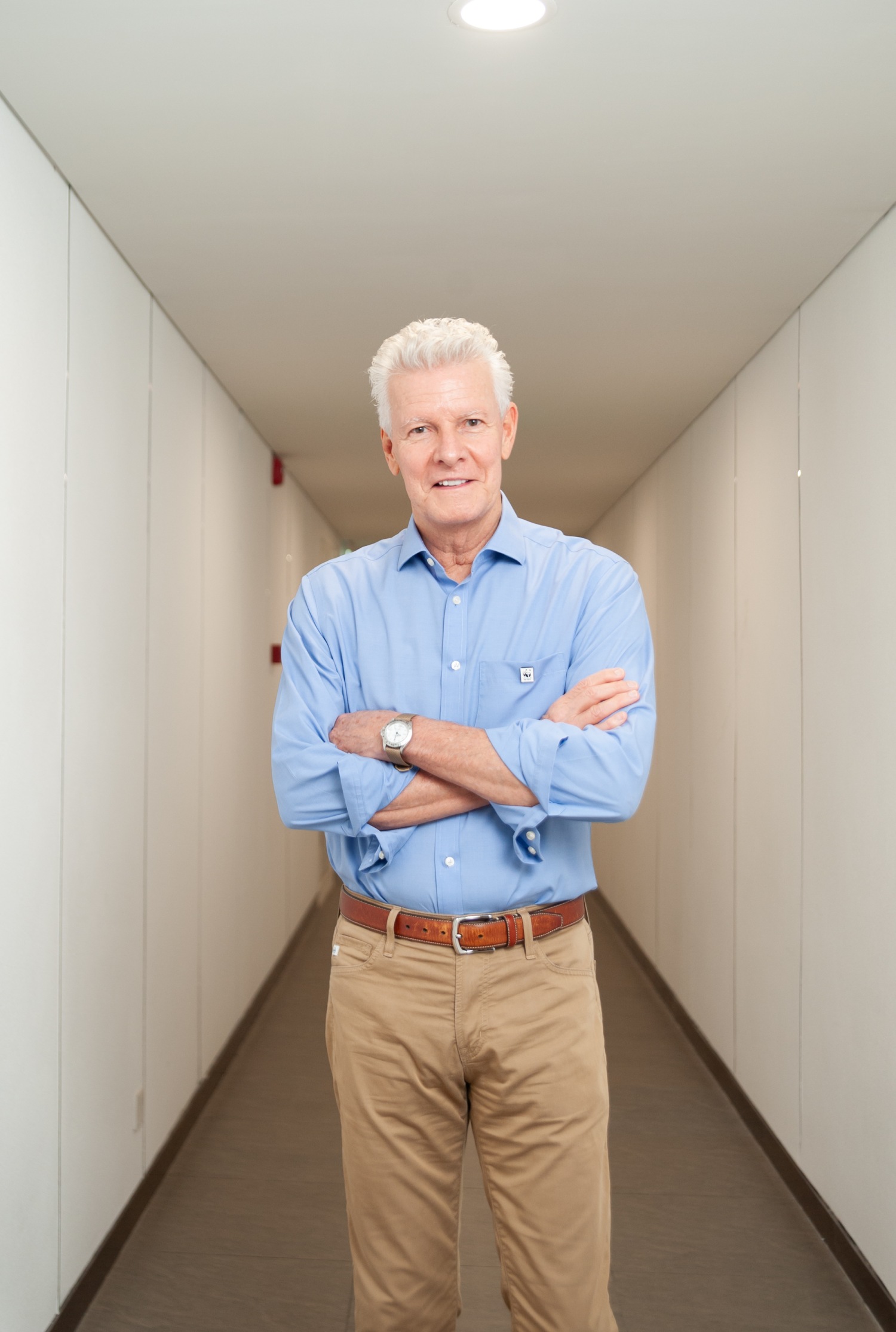Listen and subscribe to “Vietnam Innovators” in English: Apple Podcasts | Spotify | Google Podcasts | YouTube.
Listen and subscribe to “Vietnam Innovators” in Vietnamese: Apple Podcasts | Spotify | Google Podcasts | YouTube.
Vietnam is setting its sights on a sustainable future and aligning itself with the global climate movement. In a significant announcement at the COP26 World Leaders’ Summit in 2021, Vietnam unveiled its commitment to achieve net-zero emissions by the year 2050. However, it is essential to note that Vietnam’s journey to net zero is conditional on international financial support, emphasizing the global nature of climate action.
This is where initiatives from HSBC Vietnam and WWF-Viet Nam come in.
In a recent conversation on the Vietnam Innovators podcast, Bill Possiel, Chief Conservation Officer at WWF-Viet Nam, and Tim Evans, CEO of HSBC Vietnam, talked about their collaboration to provide climate solutions for a global net-zero future.

In the episode, Bill explained the organization’s main goal: “We’re here to help people live in sync with nature. We do that by giving power to local folks and collaborating closely with the government.”
From the financial side, Tim echoed Bill’s support of Vietnam’s green shift. He was excited about an initiative that started in January 2022, whereby HSBC pledged to help Vietnam raise $12 billion for sustainable projects. This came after Vietnam’s net zero announcement, proving HSBC means business. Tim pointed out that they have already secured over $1.6 billion, showing their genuine commitment to aiding Vietnam’s journey to net-zero emissions.
‘It is the right thing to do’
Given the banking sector’s strong focus on performance metrics and shareholder interests, the conversation primarily addressed concrete, measurable results. It stressed that acting quickly on these initiatives is not only beneficial for the environment but also advantageous for businesses. Host Hao Tran asked how Tim conveys this message internally within the company and to clients, emphasizing the tangible benefits, including financial dividends.
Tim’s response challenged the idea that their commitment to helping Vietnam transition to net-zero emissions and aiding customers in various markets is primarily driven by Key Performance Indicators (KPIs). He emphasized that their motivation is rooted in the belief that it’s the right thing to do.
The international bank’s CEO clarified that this isn’t a strategy to gain a competitive edge over other banks. Instead, it’s a recognition that all banks must contribute to addressing Vietnam’s substantial financing needs, estimated to be between $300 and $400 billion by 2050. Turning it into a KPI could lead to greenwashing, where actions are labeled as green for convenience but don’t genuinely support the transition to net-zero emissions. Therefore, the bank’s focus is on ensuring that every green loan or sustainable finance initiative is authentic and contributes meaningfully to the journey to net-zero emissions.
Also Read: How Banks Are Tackling Global Sustainability, With Tim Evans, CEO Of HSBC Vietnam

Tim’s explanation highlighted that government regulations play a substantial role in driving this movement, with companies needing to adapt to these regulations. Furthermore, consumer preferences are shifting towards environmentally friendly products and services. Consumers are choosing to transact with companies that prioritize environmental responsibility and avoid those that harm the environment.
According to Tim, investors are now seeking companies that align with their environmental values, and companies not making such efforts may face higher financing costs, making them less competitive. These three drivers – government regulations, consumer demand, and investor preferences – are at the core of the green initiative. HSBC’s role as a bank is to facilitate this transition, aligning with these broader trends and priorities.
Continuing with the discussion, Bill expressed his thoughts on the competitive advantage aspect raised by Tim. He emphasized HSBC and WWF’s shared values and cultural alignment. WWF’s mantra, “Number one, you do the right thing, and then, number two, you do things right,” reflects a commitment to ethics and efficiency. This shared cultural foundation serves as a strong link between the two organizations.
Addressing Tim’s point on competitive advantage, the WWF-Viet Nam’s Chief Conservation Officer provided a counterargument. He further suggested that the competitive advantage arising from HSBC’s culture and commitments to climate goals, including the net-zero target by 2050 and the Climate Solutions Partnership, extends into the financial marketplace. This advantage stems from HSBC’s distinct core values, setting it apart from other banks and financial institutions that may not share the same dedication.
Bill delved into the importance of long-term thinking versus short-term gains. While short-term benefits and quick profits may tempt some investors, most people are now considering long-term societal impacts. Financial institutions like HSBC play a crucial role in modeling this shift and driving capital investments and ideas that manifest in corporate activities.
Furthermore, Bill emphasized the significance of the corporate and financial sectors in driving change. He highlighted that changes within the financial sector, such as considering sustainability issues in loan and investment portfolios, have the potential to stimulate the transformative changes needed for a sustainable future.
‘Getting involved’
When questioned about how companies can participate in these programs, Bill responded, “It’s a difficult question, but one of the things that you want to have is to stimulate employee pride.” And this is where companies like HSBC have a significant advantage. Young talent entering the workforce today wants to be associated with ethically-minded companies. They gravitate towards organizations that share their values and principles.

So, companies can begin by evaluating and changing their practices. Take, for instance, the Science-Based Targets Initiative, a collaborative effort involving HSBC, WWF, and the United Nations in partnership with WRI. This initiative encourages companies to share information about their sustainability goals and practices. Notably, more than 5,700 companies are part of this initiative, with around 2,700 to 2,800 committing to reach net-zero emissions. This demonstrates how companies are actively looking to align their practices with sustainability goals.
It’s essential to consider not only a company’s day-to-day operations but also its role and influence within its supply chain. A company’s focus should be not only on how it can reduce its greenhouse gas emissions, but also on how it can influence its suppliers and beneficiaries to reduce theirs in tandem.
In the context of Vietnam, there are challenges when it comes to engaging employees in volunteer activities with NGOs due to permit requirements and logistical challenges. Therefore, the primary focus should remain on changing practices, aligning with core business principles, and exploring feasible philanthropic avenues. The key is to seek leverage in every effort, looking for investments that can yield substantial impact.
Whether a company is a small family business or a large corporation, there are actions anyone can take towards supporting a safe climate future. What’s crucial is that we all recognize our role in driving change. According to Bill, for meaningful change to occur, every entity needs to determine the contribution it can make toward the broader goal of achieving net zero emissions.
Watch the full episode here



